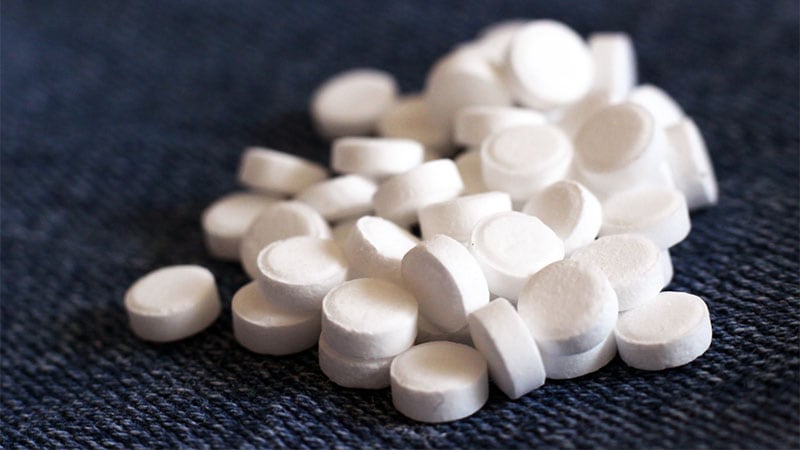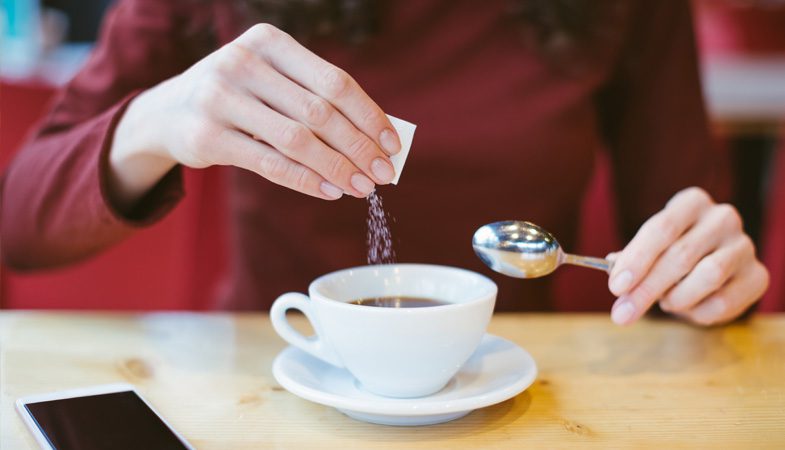- Joined
- Jun 7, 2014
- Messages
- 10,124
It's International Delight. I really love their Coldstone Creamery, but haven't found it lately.
I’ll have to try that. I love International Delights Peppermint Mocha but they only carry that flavor around the holidays.
There isn't a Whole Foods really close to me, but I did look up what they have at King Soopers - they even have a caramel, a vanilla & orange stevias. I'll try the caramel first, as it will blend in with my creamer well. The orange sounds good for tea...
Edit - the ones at Kings have to be shipped from Vitacost. Everything else seems to be a blend of stevia and erythritol. I'll have to check Amazon. I don't want to buy a large amount till I find out if I like it.
im going to say something that might start a petition to get me banned
but cant you just drink the coffee with no sugar/fake sugar
you will get used to it in no time

I’m trying to wean myself @Daisys and Diamonds..I used one packet of Splenda and three drops of Stevia extract this morning in my coffee..Splenda is very sweet…I’m a sweet addict so I have to gradually reduce it to where it would be nearly impossible to cause any problems. I don’t know that I could totally go without ANY sweetener..

I’m trying to wean myself @Daisys and Diamonds..I used one packet of Splenda and three drops of Stevia extract this morning in my coffee..Splenda is very sweet…I’m a sweet addict so I have to gradually reduce it to where it would be nearly impossible to cause any problems. I don’t know that I could totally go without ANY sweetener..

I honestly think moderation is key here. You are not drinking twelve cups of coffee a day so sweetner one or two cups shouldn’t be a big deal. I use 1/2 tsp. a day of Truvia and probably won’t stop doing so. We should all just be drinking water every day but water is boring so if you want to enjoy your morning coffee, I say go for it. Sugar is bad too - what isn’t bad? - so as long as your intake isn’t excessive you will probably be fine. I am too old now to react or overreact to these reports. They conflict each other, never tell us about the study group or how much they were consuming, and what other things were they doing to contribute to stroke or heart attack. For a life well lived, I think moderation is key. Just my two cents.
I agree. It's about moderation. Honestly, a reasonable amount of regular sugar is probably fine too. Everything is allegedly horrible for you. I was reading something about how dentists are saying carbonated water like La Croix is almost as bad as soda and that even plain mineral water is bad. They recommend room temperature tap water for each drink, with nothing else. Not even lemon because of the acid and tooth enamel. Honestly, not interested. If you get one go at this, I'm eating the cake, the ice cream and not drinking room temperature tap water every day...
Well..I started having issues which can’t be explained here..lol…from the liquid stevia. I have no idea now what to use in my coffee tomorrow morning. All the sweeteners have some issue..either related to cancer, gut problems, etc. I can’t use sugar because of my teeth..My mom is 97…She used Sweet n Low her whole life..and she’s still here. She only used one packet in a 8 ounce cup of coffee. I‘m sooo frustrated..I drink about 20 ounces of coffee in the morning...but that’s including half and half which is only 3TBS and 1 TBS hazelnut creamer..Life has become too complicated!
im going to say something that might start a petition to get me banned
but cant you just drink the coffee with no sugar/fake sugar
you will get used to it in no time


Perhaps this was already posted but just in case FYI

Sucralose Damages DNA, Linked to Leaky Gut: Study
The researchers found that sucralose causes DNA to break apart, putting people at risk for disease. They also linked sucralose to leaky gut syndrome.www.medscape.com
"
Sucralose Damages DNA, Linked to Leaky Gut: Study
Lisa O'Mary
June 01, 2023
A new study reveals health concerns about the sugar substitute sucralose so alarming that researchers said people should stop eating it and the government should regulate it more.
Sucralose is sold under the brand name Splenda and is also used as an ingredient in packaged foods and beverages.
The findings were published this week in the Journal of Toxicology and Environmental Health, Part B. The researchers conducted a series of laboratory experiments exposing human blood cells and gut tissue to sucralose-6-acetate. The findings build on previous research that linked sucralose to gut health problems.
The researchers found that sucralose causes DNA to break apart, putting people at risk for disease. They also linked sucralose to leaky gut syndrome, which means the lining of the intestines are worn down and become permeable. Symptoms are a burning sensation, painful digestion, diarrhea, gas, and bloating.
When a substance damages DNA, it is called genotoxic. Researchers have found that eating sucralose results in the body producing a substance called sucralose-6-acetate, which the new study now shows is genotoxic. The researchers also found sucralose-6-acetate in trace amounts in off-the-shelf products that are so high, they would exceed the safety levels currently allowed in Europe.
"It's time to revisit the safety and regulatory status of sucralose because the evidence is mounting that it carries significant risks. If nothing else, I encourage people to avoid products containing sucralose," said researcher Susan Schiffman, PhD, adjunct professor of biomedical engineering at North Carolina State University, in a statement. "It's something you should not be eating."
The FDA says sucralose is safe, describing it as 600 times sweeter than table sugar and used in "baked goods, beverages, chewing gum, gelatins, and frozen dairy desserts."
"To determine the safety of sucralose, the FDA reviewed more than 110 studies designed to identify possible toxic effects, including studies on the reproductive and nervous systems, carcinogenicity, and metabolism," the agency explained on its website. "The FDA also reviewed human clinical trials to address metabolism and effects on patients with diabetes."
Sources
North Carolina State University: "Chemical Found in Common Sweetener Damages DNA."
Cleveland Clinic: "Leaky Gut Syndrome."
Journal of Toxicology and Environmental Health, Part B: "Toxicological and pharmacokinetic properties of sucralose-6-acetate and its parent sucralose: in vitro screening assays."
"

Great…I’ve been using five packets a day of Splenda after stopping everything else. I think I’m going to use sugar!


